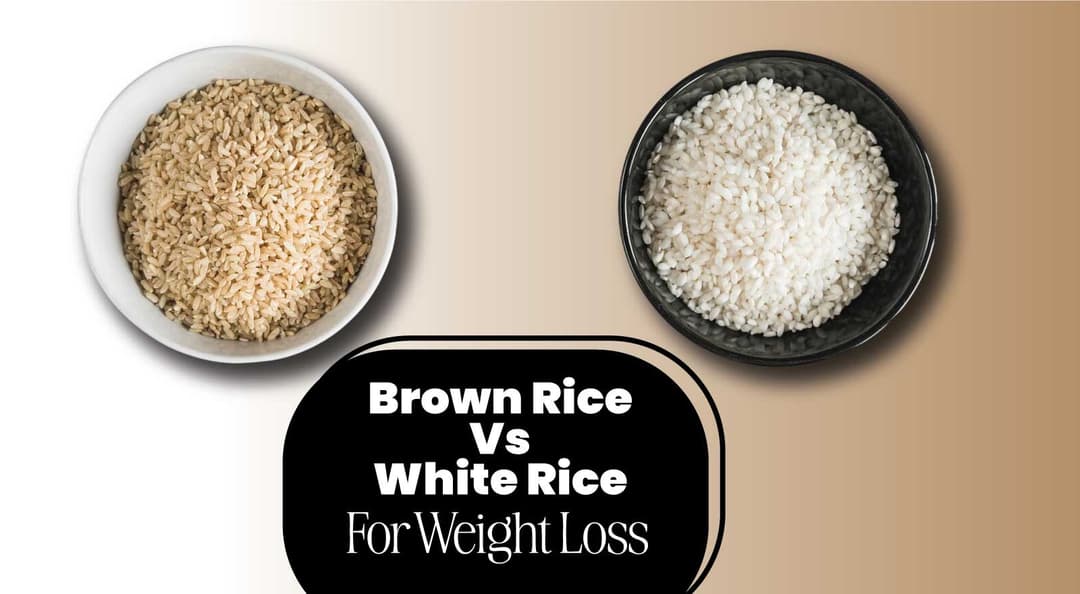Everyone's weight fluctuates from time to time, and it's perfectly normal. In fact, 1-2kg weight fluctuation in adults is considered normal. This is usually due to changes in the body's water weight. Weight change can be a cause for concern when one unintentionally gains or loses a significant amount of weight without knowing why. In this blog, we will focus on rapid weight gain in women and the reasons behind it.
Rapid weight gain can take a toll on your physical and mental health, so it's important to get to the bottom of what's causing your weight gain to fix the problem. Unexpected, rapid weight gain can be caused by lifestyle changes such as quitting smoking, getting a desk job, eating too many processed foods, etc. It could also be due to certain medications, lack of sleep, or changes in one's hormone levels. However, there could also be underlying medical conditions behind rapid weight gain, such as kidney disease, insomnia, and cirrhosis.
Several studies and research show that it's more common for women to gain weight than men, and today, we will discuss possible causes of rapid weight gain in women and other accompanying symptoms you should watch out for. Keep reading to find our more.
Table of Contents
- What Causes Rapid Weight Gain In Females? 16 Causes Of Rapid Weight Gain
- Signs Of Weight Gain In Females
- What Are The Reasons Of Sudden Weight Gain After 40?
- Treatment Of Rapid Weight Gain
- Dietitian’s Recommendation
- The Final Say
- FAQs
- References
What Causes Rapid Weight Gain In Females? 16 Causes Of Rapid Weight Gain

The following are the most common causes of weight gain in females:
1. Increase In Food Consumption
According to the NHS, most people gain weight because their calorie intake is more than the calories they burn each day, including the calories burned through exercise and body functions. In 2009, the European Association for the Study of Obesity reported that the increase in obesity since the 1970s was almost entirely due to increases in calorie intake. It is important to avoid calorie-heavy foods if you wish to prevent rapid weight gain.
2. Reduced Physical Exercise
Limited exercise is thought to be the main reason for weight gain, especially as we grow older, because most people stop exercising or playing a physical sport. This reduces the amount of calories burned, resulting in rapid weight gain. Try BMI-focused exercise routines to maintain a healthy BMI and body fat percentage and prevent weight gain.
3. Polycystic Ovary Syndrome (PCOS)
PCOS is a common condition that 8–13% of reproductive-aged women worldwide have. It affects the functioning of a woman's ovaries and causes rapid weight gain, irregular periods, acne, etc. The cause of PCOS is unknown, but it is thought to be related to hormones, particularly too much insulin and testosterone. Women with PCOS tend to gain the most weight around their waist.
You can opt for ToneOp Care’s Ova 360 sachets to manage PCOS symptoms, including weight gain. It contains myo-inositol, D-chiro inositol, vitamin D3 & folic acid to manage PCOS, regulate hormones, and normalise periods and ovulation.
Also Read: 7 Benefits Of Intermittent Fasting For PCOS With Challenges To Overcome!
4. Water Retention
Unexplained rapid weight gain can also be the result of fluid retention, which can cause swelling in the limbs, hands, feet or face.
5. Stress, Depression and Anxiety
Rapid weight gain can be a symptom of anxiety – but it isn't anxiety itself that causes weight gain. It's the stress hormone called cortisol that makes it harder for people with anxiety to manage their weight. Cortisol is released during stress and causes fat to accumulate.
Besides that, mental struggles like stress and anxiety can lead to overeating, more commonly known as stress-eating. Many people find comfort in food during tough times, and the more stressed they are, the more likely they are to stress-eat, resulting in rapid weight gain.
6. Lack of Sleep
Insomnia, or lack of sleep, can also cause rapid weight gain. Research from the University of Colorado found that one week of sleeping about 5 hours a night resulted in participants gaining an average of 0.9kg (2 lbs). Lack of sleep causes changes in the hormones that regulate hunger and appetite. It can also affect food cravings, leading to more intense cravings for foods full of fat and sugar. People may also turn to food at night if they're unable to sleep.
7. Irregular Meal Times
A recent study showed growing evidence between eating late at night and weight gain. Previous studies have also identified a pattern between eating later and increased weight gain, with caloric intake after 8 pm increasing the risk of obesity.
Those who ate too close to bedtime had a higher BMI and higher body fat. The research also showed that those who ate late at night and slept an average of 7 hours also gained weight, meaning lack of sleep was not the primary cause of rapid weight gain.
8. Hypothyroidism
Hypothyroidism, a condition where your thyroid gland is not producing enough thyroid hormone, also causes rapid weight gain. Thyroid plays a central role in regulating your metabolism, growth and development, and an underactive thyroid causes a lack of thyroid hormone, without which, the body's metabolism slows down, leading to weight gain.
9. Medication
Some medications can cause people to gain weight quickly. Medications that can cause rapid weight gain include antidepressants, diabetes medication, contraceptives, antipsychotics, etc.
10. Menstruation
The menstrual cycle is also associated with intermittent weight gain. Women may experience water retention and bloating during menstruation or face fluctuations in estrogen and progesterone levels, causing an increase in numbers on the weighing scale. This weight gained is usually several kilograms, but it goes away after your period ends. It often reappears with the menses and sometimes during ovulation.
11. Pregnancy
One of the most common causes of rapid weight gain in women is pregnancy. However, many women eat more to support the baby's growth and gain weight as the baby grows. This excess weight consists of the baby, placenta, amniotic fluid, increased blood flow and an enlarged uterus.
12. Ageing
People become less active as they age and begin to lose muscle mass. Both of these contribute to fewer calories burned, resulting in rapid weight gain after a certain age.
13. Hormonal Changes
During menopause, the level of estrogen decreases in a woman's body. Due to the lack of this hormone, the metabolism slows down, which reduces the rate of burning calories. As a result, fat starts accumulating in the body, and the woman gains weight.
Also Read: Diet For Hormonal Imbalance: Fix Your Hormones With These Key Nutrients And 8 Vital Foods
14. Slowing Down of Metabolism
Other than hormonal changes and hypothyroidism, metabolism also slows down with age. After menopause, this process slows down even more, due to which weight begins to increase rapidly.
Also Read: Your Guide to Calorie Burning By Exercise: Top 7 Workouts For Maximum Burn In 30 Minutes
15. Ovarian Cancer
Sudden or unexplained rapid weight gain and swelling can be a sign of ovarian cancer. Other symptoms of ovarian cancer include:
- Abdominal or pelvic pain.
- Trouble sleeping.
- An urgent or frequent need to urinate.
- Loss of appetite or rapid feeling of fullness.
- Irregular menstrual cycle.
- Indigestion
16. Cushing's Syndrome
Weight gain is a common symptom of Cushing's Syndrome, a condition in which the body is exposed to too much cortisol, a stress hormone, which leads to weight gain and other abnormalities. It can happen when the adrenal glands make too much cortisol, and it could be related to a tumour. Rapid weight gain on the forehead, neck, upper back, or waist may be most noticeable.
You can also try ToneOp’s Balanced Diet Weight Loss Plan, in which our fitness expert will guide you through your weight loss journey and curate a balanced diet that is specifically tailored to your needs and problems. They can help you identify the causes of rapid weight gain and design a personalised diet plan to help you achieve your ideal weight in a sustainable way.
Also Read: Workout Routine With 11 Best Morning Exercises To Reduce Weight And Belly Fat!
Signs Of Weight Gain In Females
Sometimes, weight gain in females can go unnoticed. However, it can be a sign of a problem in some cases. Following can be the signs of rapid weight gain in women:
1. Waist measurement: A waist measurement of more than 35 inches (89 centimetres) is considered unhealthy and signals high visceral fat in the belly. It can also indicate an increased risk of health issues like heart disease, sleep apnea, metabolic syndrome, high blood pressure, high sugar, etc.
2. Cravings: Increased sugar cravings can signify weight gain. Sugar-rich foods contain high amounts of calories and can increase significant fat in the body. Additionally, sugar may also increase a person’s appetite for calorie-heavy foods.
3. Acne: Hormonal changes that occur with excess weight can cause acne. Obesity has been linked to an increase in androgen levels, which are hormones that stimulate sebum production, which can lead to acne. Various studies have suggested an association between obesity, androgen levels, and the severity of acne in women.
4. Hair loss: While this is an indirect sign, hair loss may signify insulin resistance, stress, and hypothyroidism— all of which can lead to rapid weight gain.
5. Fatigue & Lethargy: Chronic exhaustion or extreme tiredness can be a sign of weight gain. If a person is fatigued, they are less likely to do any physical activity or move around too much for day-to-day activities, which can contribute to weight gain. Fatigue or lethargy and weight gain can also be linked to other, bigger problems like hypothyroidism, kidney diseases and sleep disorders.
6. Swollen feet: Swelling in the legs, ankles, or feet can be a sign of weight gain and other problems. This swelling can happen due to the excess weight and pressure put on the joints of one’s lower body, causing fluids to retain in one's feet.
7. Stretch marks: Stretch marks can occur when one's skin stretches rapidly, usually due to weight gain. These fine lines in the skin are caused by a tear in the middle layer, allowing the skin to stretch out more, signifying rapid weight gain.
Also Read: Weight Loss Tip For Women With Effective Strategies | ToneOpFit
Treatment Of Rapid Weight Gain
There are several ways to treat sudden weight gain. The best treatment varies for every person, depending on the cause of your unwanted weight gain:
1. Hormonal Imbalance: If the cause is a hormonal imbalance, medications and hormone therapy are recommended. For women experiencing symptoms related to menopause, hormonal birth control containing estrogen and progesterone can regulate menstrual cycles. For those with hypothyroidism, medications like levothyroxine are commonly prescribed to replace the missing thyroid hormone. Metformin is prescribed to assist control of insulin levels and reduce androgens in patients with polycystic ovarian syndrome (PCOS).
Note: The medications mentioned are just for information. Do not take any medication without a prescription.
2. Eat a balanced diet: It's very important to eat a nutritious and balanced diet. Stay away from junk food and include more fibre, fruits, vegetables and protein in your diet. Try ToneOp’s Wheat Grass Powder for Weight Loss to further aid your weight management!
3. Daily exercise: Incorporate light exercise such as yoga, walking or swimming into your daily routine. This will keep your metabolism in order and keep your weight under control.
If you want to lose weight and stay healthy, consider trying ToneOp’s Live Home Workout Plan, where you will discover flexible live sessions from ToneOp’s certified coaches without requiring any special equipment.
4. Adequate sleep: Getting good sleep also helps in weight control. Try to sleep 7-8 hours at night.
5. Avoid stress: To reduce stress, adopt meditation, breathing exercises and relaxation techniques.
Also Read: 5 Stress Relief Workouts And 7 Ways To Unwind For A Balanced Life
What Are The Reasons Of Sudden Weight Gain After 40?
Our lifestyle and metabolism slow down as we age, making us more susceptible to weight gain. This is especially true for women. Women are naturally more prone to gaining weight than men, and after a certain age, weight gain can become even more of an issue.
After 40, as women are on the way to their 50s, women go through perimenopause, the time before menopause. Weight gain is a common symptom of perimenopause, and it can be difficult for women to maintain or reduce their weight during this period. Women tend to gain weight and accumulate fat around their abdomen during this time.
When women reach menopause, they experience a decrease in estrogen and progesterone levels, which can be a contributing factor to further weight gain. Women also experience a decrease in muscle mass during menopause, which can further increase their weight and fat.
The age-specific reasons for rapid weight gain in women over 40 are:
- Loss of muscle mass
- Slowed metabolism
- Perimenopause
- Menopause
- Body composition changes
Dietitian’s Recommendation
Rapid weight gain can be a complex problem with many contributing factors. By understanding these causes and taking proactive steps, you can manage your weight and improve overall well-being. Remember that you are not alone in this journey and that there are resources and support available to help you along the way.
Dt. Akshata Gandevikar
The Final Say
Weight gain and short-term fluctuations can occur for several reasons, such as ageing or changes in lifestyle and diet. However, rapid weight gain can also be a sign of an underlying medical condition, such as a thyroid, kidney, or heart problem. The causes of rapid weight gain in women can feel like a never-ending game of hide-and-seek, but it's important to identify them so that you can take proactive steps to prevent any further health issues.
FAQs
1. How much weight gain is considered unexpected?
A sudden increase of more than 5% of your current body weight in a short period of time can usually be considered unexpected weight gain.
2. Why am I gaining weight so fast all of a sudden?
There can be several causes of rapid weight gain, including an increase in food consumption, reduced physical activity, medication, hypothyroidism, stress, anxiety, depression, water retention, etc.
3. Can unexpected weight gain be reversed?
Yes, depending on the cause of the weight gain, lifestyle changes such as dietary changes, regular exercise, stress management, and medical care can help reverse unexpected weight gain.
4. Can low iron levels cause weight gain?
People with iron deficiency experience low energy levels and sudden weight gain due to an underactive thyroid gland.
5. Do people gain weight after afternoon naps?
Not exactly; so far, there hasn’t been any correlation between taking afternoon naps and weight gain.
References
- https://www.healingpharma.in/blog/gaining-sudden-weight-these-9-causes-can-lead-to-rapid-weight-gain-in-women/
- https://www.medicalnewstoday.com/articles/324872#faq
- https://www.medicoverhospitals.in/symptoms/unexpected-weight-gain
- https://www.marsden-weighing.co.uk/blog/rapid-weight-gain-cause?srsltid=AfmBOorqrZxDchHe7-vyxz0_nqzk5tKIt8cKIMBkwYA9-iFyqm3K5nVs
- https://www.abplive.com/lifestyle/health/why-do-women-gain-weight-quickly-after-menopause-2768980
About ToneOp Fit
ToneOp Fit is a platform dedicated to improving and maintaining good health through a comprehensive range of goal-oriented health plans with up to 3 Coach support. With a range of Weight Management, Medical Condition, Detox Plans, and Face Yoga Plans, the app also provides premium health trackers, recipes and health content. Get customised diet, fitness, naturopathy & yoga plans and transform yourself with ToneOp.









































